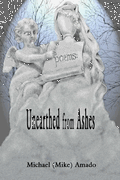
Interview with Patricia Brodie: author of “American Wives Club.”
Patricia Brodie is the author of a new poetry collection from the Ibbetson Street Press, “The American Wives Club.” Brodie was born in New York City, and lived in Boston and California before moving to Sao Paulo, Brazil. She taught English in Concord, Mass, and later became a clinical social worker. Her poetry has appeared in “Whidbey Island,” “Edge City,” “Ibbetson Street,” “Potpourri” and many other publications. I talked with Brodie on my Somerville Community Access TV show “Poet to Poet: Writer to Writer.” http://poettopoetwritertowriter.blogspot.com/
Doug Holder: Your poetry collection touches on the ying and yang of marriage. Is marriage worthwhile?
Patricia Brodie: Oh yes. Of course. I feel that you’re lucky if you can deal with the ying and yang and stay married. If it works for you both that is.
DH: How is it to have released your first collection? What took you so long?
PB: I didn’t start writing poetry till 2000. But I was busy with teaching, social work, raising a family, getting used to Brazil, and a lot of things. When I started to pull back from being a social worker; I took a course at Concord Adult Ed, and started to write poetry. I have 85 to 90 poems published. That’s when I thought I would like a chapbook published.
DH: Some say the routine of marriage is deadening to creativity? Writers, especially young writers, laud the footloose and fancy free
lifestyle. What do you say?
PB: I don’t see it that way. I think it is a font of material.
DH: You wrote a poem about the suicide of your grandfather. Did this provide you with a sense of closure?
PB: Nobody ever told me about his suicide. It happened long before I was born. Nobody told me how he died. When I was visiting a cousin in Scotland, I looked him up in the town records. And there was all this detail about his life in Scotland. And this came as a shock to me. My father wasn’t around anymore, and my cousin wasn’t forthcoming. There was no one to ask about this. So this is where the poem came from. You learn more about yourself, and why your parents acted in certain ways.
DH: You wrote a poem about a colleague at a community mental health center who lost a daughter due to suicide. Do you use your experiences as a social worker as material for poems?
PB: The poem you mentioned was one of the few poems about my work. It just doesn’t happen. I worked in a community mental health center for several years. The psychiatrist, a nice guy, had a daughter who was living in New Jersey. One day she went on the railroad tracks, sat down with her baby, as a train was coming. The baby squirmed out of her arms into a snow bank and was ok. The daughter was killed. The psychiatrist, her father, did not prevent this, and he blamed himself for not realizing how depressed she was. He felt he could work as a psychiatrist anymore. He felt if he couldn’t tell that his own daughter was suicidal, how could he work as a psychiatrist?
DH: Quite a few of your poems deal with your time in Brazil?
PB: Quite a few. The poet Elizabeth Bishop lived there for at least 12 years and she liked it. She wrote a lot of poems there. I married a man who was Italian but was raised in Brazil. He had a job waiting for him there. His family was there. So we moved to Brazil. I never got to like it. The country was beautiful, the people were warm…it’s a wonderful population. But there were aspects for me that just didn’t work. It was a very different culture. I couldn’t grow there. Women were like the 1950 June Cleaver there. When I came back to the states in 1975, it took me a full year to adjust. I went through culture shock in my own culture.
DH: Describe how you got the title for your book “The American Wives Club.”
PB: It’s the main poem in the collection. On one side it deals with Brazil, and the other side is my difficulty getting along there. I was in a sort of club with other women who were married to Brazilians. We supported each other in this dual culture environment.
DH: Was your family surprised by anything in the book?
PB: My family is basically my husband and four children. They are very pleased.
DH: What are your ambitions for your poetry?
PB: I find my poetry is evolving. I don’t know where it is going, but it is changing. I’m still on the road, and I am going to see where it goes.
__Doug Holder
* ‘The American Wives Club” is available through the Ibbetson Street Press c/o Doug Holder 25 School St. Somerville, Mass. 02143 http://www.ibbetsonpress.com/
